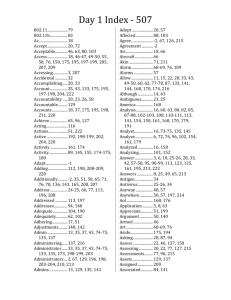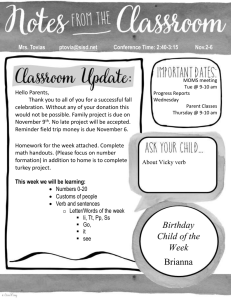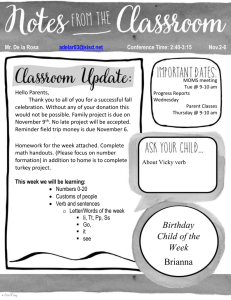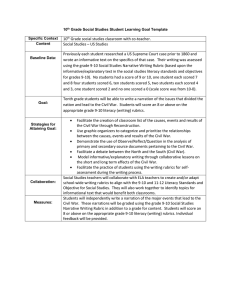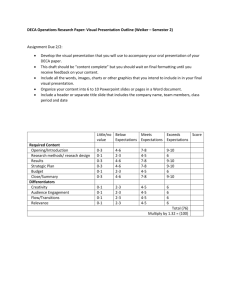Unit 4: Family and Community Unit Objectives: Week 1:
advertisement
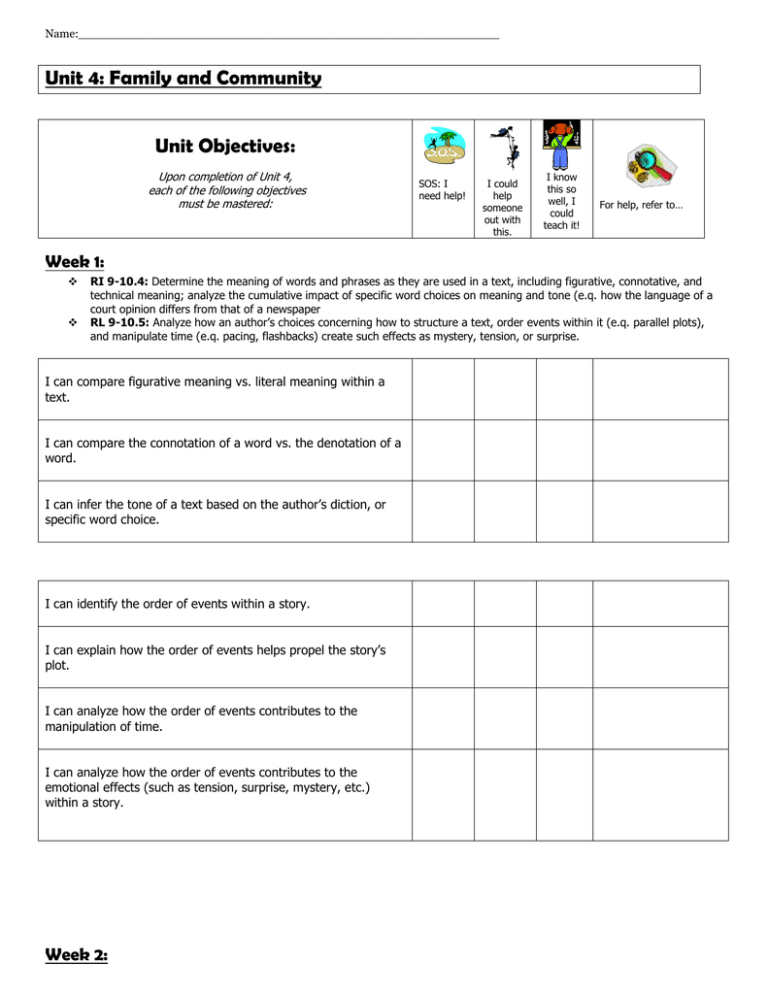
Name:__________________________________________________________ Unit 4: Family and Community Unit Objectives: Upon completion of Unit 4, each of the following objectives must be mastered: SOS: I need help! I could help someone out with this. I know this so well, I could teach it! For help, refer to… Week 1: RI 9-10.4: Determine the meaning of words and phrases as they are used in a text, including figurative, connotative, and technical meaning; analyze the cumulative impact of specific word choices on meaning and tone (e.q. how the language of a court opinion differs from that of a newspaper RL 9-10.5: Analyze how an author’s choices concerning how to structure a text, order events within it (e.q. parallel plots), and manipulate time (e.q. pacing, flashbacks) create such effects as mystery, tension, or surprise. I can compare figurative meaning vs. literal meaning within a text. I can compare the connotation of a word vs. the denotation of a word. I can infer the tone of a text based on the author’s diction, or specific word choice. I can identify the order of events within a story. I can explain how the order of events helps propel the story’s plot. I can analyze how the order of events contributes to the manipulation of time. I can analyze how the order of events contributes to the emotional effects (such as tension, surprise, mystery, etc.) within a story. Week 2: R.I.9-10.5: Analyze in detail how an author’s ideas or claims are developed and refined by particular sentences, paragraphs, or larger portions of a text (e.g., a section or chapter). R.I.9-10.6: Determine an author’s point of view or purpose in a text and analyze how an author uses rhetoric to advance that point of view or purpose. I can determine an author’s main idea or claim in an informational text. I can identify particular sentences, paragraphs, or passages of a text that support the author’s main idea or claim. I can explain how a particular sentence, paragraph, or passage supports the author’s main idea or claim in an informational text. I can define author’s point of view as their purpose in writing, answering the question of “Why did the author write this?” I can identify some common types of author’s purpose, such as to teach, to entertain, to persuade, or to build suspense. I can identify key techniques that an author uses to express their purpose, such as literary devices, writing style, or language. I can explain how a technique helps develop an author’s purpose. Weeks 3 & 4: W.9-10.2: Write informative/explanatory texts to examine and convey complex ideas, concepts, and information clearly and accurately through the effective selection, organization, and analysis of content W. 9-10.4: Produce clear and coherent writing in which the development, organization, and style are appropriate to task, purpose, and audience. I can write an informative/explanatory claim based on a topic. I can structure informative’/explanatory piece of writing. (claim, evidence, analysis) I can use a variety of graphics and multimedia (tables, charts etc.) in my writing to support my claim. I can write using evidence relevant to my audience. I can write a conclusion that supports the informative or explanatory presented in my writing.
